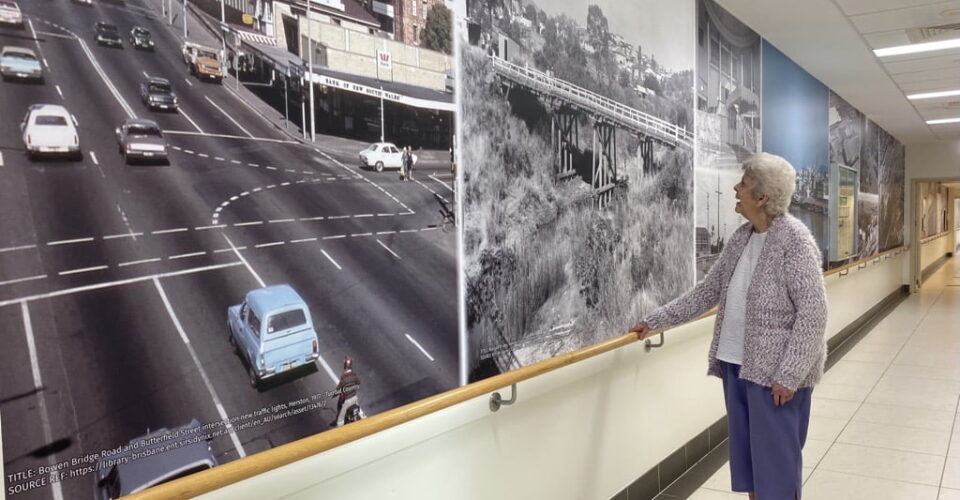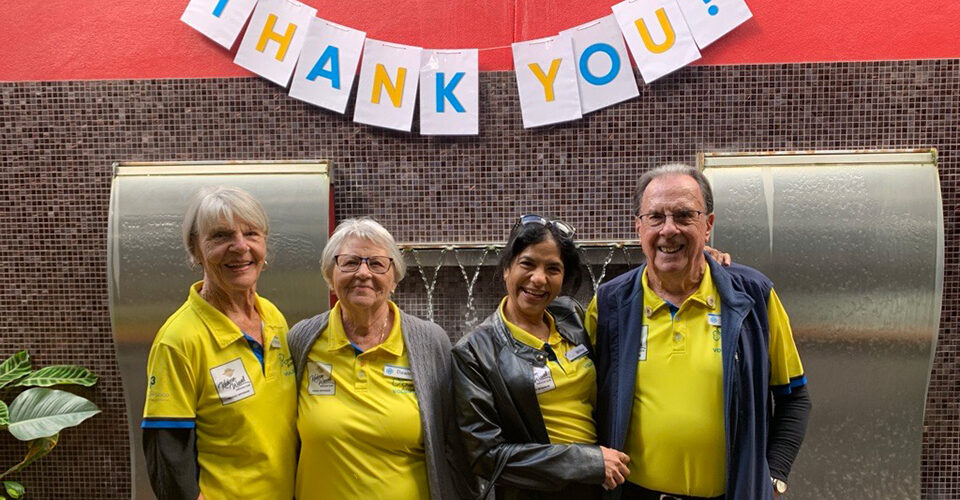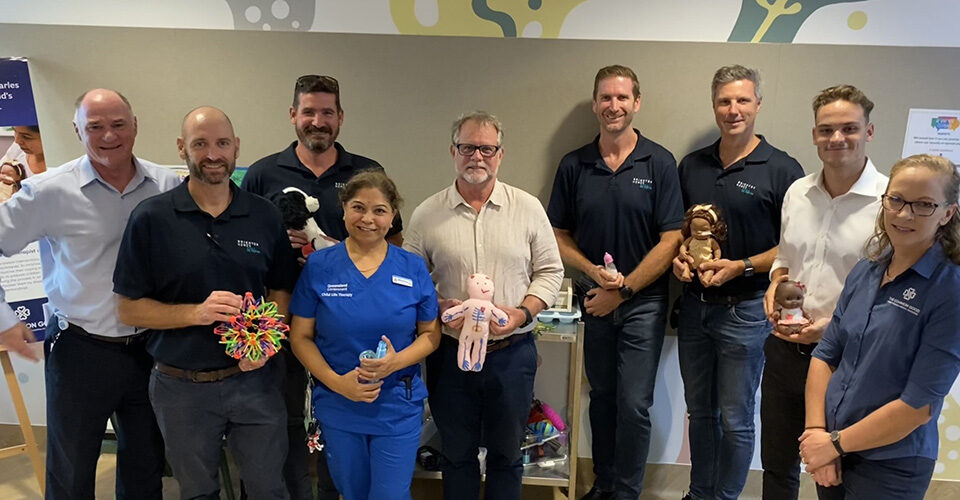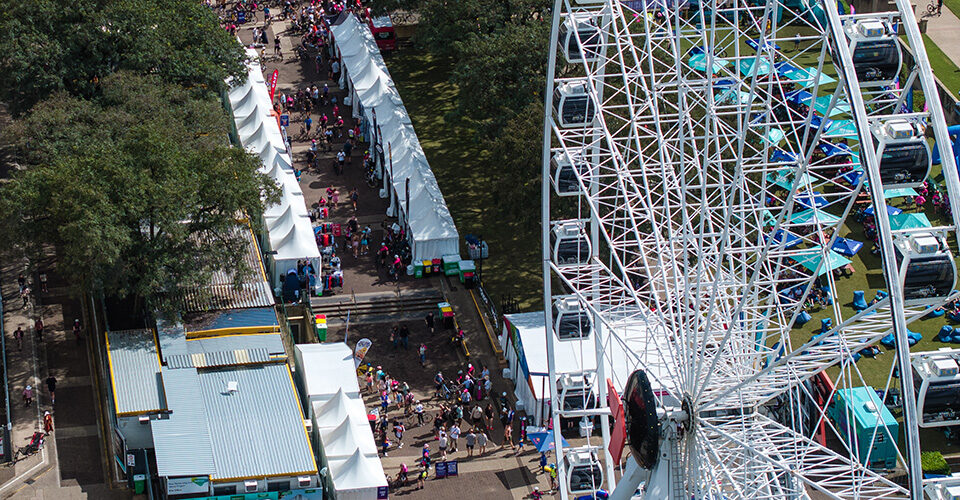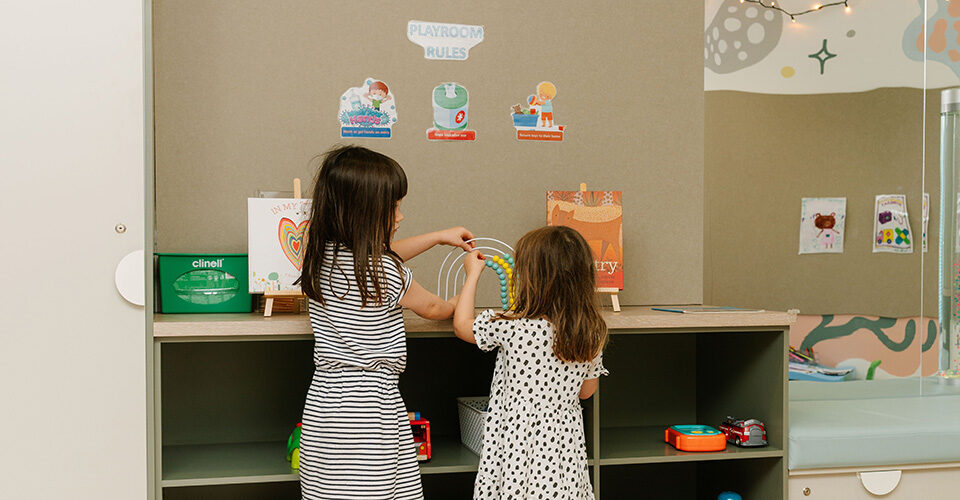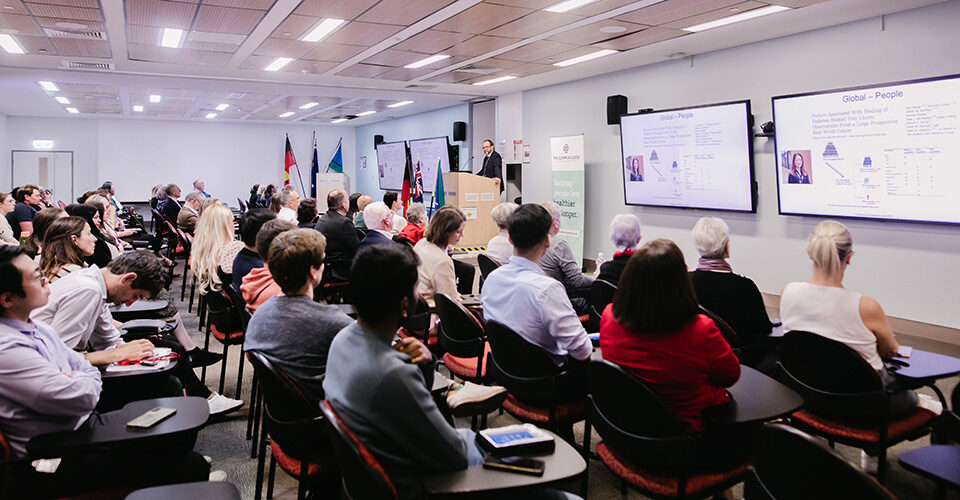On the first floor of The Prince Charles Hospital, patients and their families can now take a stroll down the newly completed ‘Memory Lane’. This hospital hallway was recently adorned with images from yesteryear, transforming it into a sought-after walking destination.
This particular corridor leads to Wards EMU, 1F and 1G/GEM Ward, where older adults are cared for, and its revamp is set to benefit many who are admitted here. For many patients, staying active and maintaining their strength and balance can be difficult while they are in hospital. Importantly, Memory Lane gives these patients a reason to get out of bed and move and offers something to engage with cognitively.
While the upgraded hallway is now a drawcard for hospital patients, visitors and staff, its transformation is only possible because several parties came together for the common good, including the compassionate hospital staff from Internal Medicine Services, the team at The Prince Charles Hospital Foundation, and last but certainly not least, the incredible people who supported the project during Giving Day in 2022.
Keep reading as we share more on the benefits of Memory Lane and how this impactful project became a reality.
About The Prince Charles Hospital’s Memory Lane
Bed rest and sedentary behaviour exacerbate functional decline, and in older hospital patients, this lack of physical activity can lead to a significant drop in independence.
“We know that lying in a hospital bed and losing condition (deconditioning) is associated with depression and demoralisation. And that’s completely understandable – any one of us would feel like that,” said Dr Lucy Dakin, the Director of Geriatrics and Subacute Services at The Prince Charles Hospital.
Some frail older patients who’ve experienced hospital-associated deconditioning may even need to be discharged into an aged care facility – which can be a devastating reality for many who crave the comfort and familiarity of their own home.
Memory Lane was inspired by a similar memory corridor overseas after a nurse practitioner shared the idea. Plus, it utilises the concepts of the multi-disciplinary Eat Walk Engage Program to enhance care and promote faster recovery of older hospital patients.
“We want to encourage people to mobilise (in the hospital)– so how do you encourage people to mobilise? You get them a task to do. Go and walk down this memory lane, have a look at old pictures of Prince Charles, old pictures of Brisbane that will stimulate their memory but also get them walking and stimulate their mobility as well,” said Jeff Rowland, Director of Internal Medicine, at The Prince Charles Hospital.
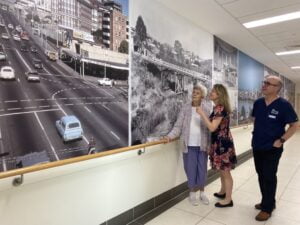
Images selected for the impactful corridor
Among the carefully selected photos that showcase the rich history of Brisbane and The Prince Charles Hospital, you will find imagery of the 1982 Commonwealth Games and its mascot Matilda, Royal visits of Queen Elizabeth 2 in 1954, and Prince Charles in 1994 to The Prince Charles Hospital.
There is also a range of pictures of local landmarks under construction, like Houghton Highway, Lang Park (now more commonly known as Suncorp Stadium) and the Story Bridge.
The suburbs surrounding the hospital are another focal point, with pictures showing the old tram line on Gympie Road and Chermside’s shopping precinct in 1972.
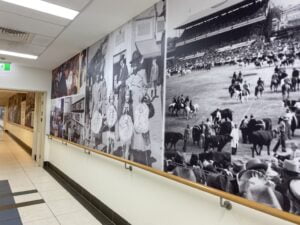
Benefits of Memory Lane
Hospital staff say Memory Lane supports patients’ functional, emotional, physiological, and behavioural well-being.
Here are some of the top benefits:
- Evokes feelings of nostalgia
If reminiscing by looking at old photos boosts your mood, you’re not alone.
The memories evoked can take us back to happy days, and talking about and remembering those moments with others can also strengthen bonds and enhance social connection.
“The Internal Medicine Program hopes the Memory Lane will support patients’ experience nostalgia and reminiscing given this provides a connection between our past and present selves, and we know this can be calming and reduce stress, along with providing a physiological and emotional response, consistent with feeling safe,” said Kevin Clark, Nursing Director of Internal Medicine Services at The Prince Charles Hospital.
- Encourages mobility
As discussed previously, older patients are at greater risk of functional decline, as hospital-associated deconditioning tends to happen at a faster rate for them.
That is why activities or places encouraging and supporting mobility are vital in a hospital setting.
“As we get older, we lose muscle very quickly when we become stationary. So, lying in bed just for a few days, older people can lose a lot of muscle – and that muscle is very important for walking and independence,” said Dr Lucy Dakin, the Director of Geriatrics and Subacute Services at The Prince Charles Hospital.
“We know that older people who are lying in bed often can’t regain their independence and face a lot of obstacles to their recovery,” Dr Dakin added. “Giving them motivation and a reason to get out of bed helps them to improve that independence, so anything that we can do in the hospital environment to contribute to that is really valuable.”
Thank you for supporting Memory Lane
Projects like Memory Lane are only achievable when incredible supporters like you back them.
Thank you to everyone who donated to make this project and others a reality.
If you wish to make a difference in hospital patient care or give time to the dedicated researchers we support who are working towards life-changing medical breakthroughs, click here.
